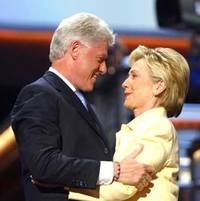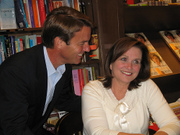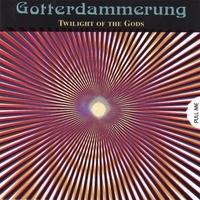Following is the essay you can designate as Volume 10, Number 46 of
This Week’s Clue, based on the e-mail newsletter I have produced since
March, 1997. It would be the issue of November 19.
Enjoy.
The most destructive force in American politics is the wind that doesn’t blow. (From Sarah’s blog.)
It’s the wind of an expired political thesis at a time of crisis. Right now it’s the wind which supports the Republican Party’s myths and values, the ideas which animate George W. Bush and all those who seek to follow him.
It’s the Nixon Thesis of Conflict. It has lost its power, it is no longer believed by the people, it is completely irrelevant to our time, yet our media and government continue to treat it as absolute truth.
Every independent poll, and now two by-elections, are proof this wind no longer blows. By margins of nearly 2-1 Americans agree with Democratic principles on nearly every issue, even those issues Republicans have long held most dear, like terror and security.
Hillary and Bill Clinton continue to lean into this wind. They
have faced this wind all their adult lives. It’s the wind which blew at
the back of Richard Nixon, of Ronald Reagan, of the first President
Bush. It’s the wind which gave us Newt Gingrich and which knocked down
Al Gore. It’s the wind Bush used to terrorize us when the Towers fell, that gave us the War in Iraq.
That wind has blown itself out.
Yet every single political reporter in Washington, no matter their
claimed ideology, assume this wind continues to blow at gale force, even though it
is not only becalmed, but blowing the other way. You hear it in the columns of David Broder, in the gotcha questions of Tim Russert, in the hype of Wolf Blitzer, in the rage of Lou Dobbs.
The American people
want health care, they want their boys and girls back home. They want
education, electoral reform, a real War Against Oil. They want the
planet saved, and the deficit brought under control.
Yet the nods toward these aims by Hillary Clinton are only nods,
only rhetoric. "I’ve been fighting for you for 35 years," she says, but
what she means is she has been leaning into that wind. When other
Democrats accuse her of "triangulating," they mean she (and her
husband, who somehow stands above criticism among Democrats) are leaning into that wind, the wind that doesn’t blow.
This wind that doesn’t blow has a long, dark history in American
politics. With every generation it frustrates the will of the people,
who see small steps when they want grand reforms:
- The wind that doesn’t blow caused Richard Nixon to create a
host of agencies in his first term of office, from the EPA to OSHA to
the EEOC and CPSC. The popular will was to reduce the size of
government, and he fed that need with his rhetoric, yet he was, in
domestic policy, the most successful liberal of them all. - The wind that doesn’t blow kept Franklin Roosevelt from really
addressing the Great Depression. It kept his budget deficits so low
they couldn’t build the demand needed to put people to work, as Hitler
and Mussolini were doing with their war machines. The Depression didn’t
truly lift until World War II. Generations would be taught that "big
government doesn’t work," when it was only tried in rhetoric, not
reality, until the world was at stake. - The wind that doesn’t blow kept Theodore Roosevelt‘s achievements
modest. His big stick only hit foreign foes, and Standard Oil wasn’t
broken up until after he left office. His achievements, too, were
mainly rhetorical, as he feared angering the Money Power he had told
Americans he’d confront. - The wind that doesn’t blow had its most epic effect on Abraham
Lincoln. He fought against going to war, fought that war only for
Union. He was a reluctant emancipator, urging gentleness toward the
South while the new wind demanded vengeance. And so blacks were given
freedom, but not liberty, and when the wind at his back finally died,
black hopes for true liberty were denied for nearly a century.
In every generation, at every time of crisis, the American people change well before their
leaders. Our leaders remain obsessed with the wind that doesn’t blow, a
wind they feel at their faces even though it’s at their backs.
A new political thesis, a new set of myths and values meant to
inspire power, is born from the bottom up. It’s born in new media, in
horrible events, through panic and rage against the forces which have
outlived their time. We have seen it and seen it, and we’re seeing it
again.
Must the story be repeated? Even though you now know it?













